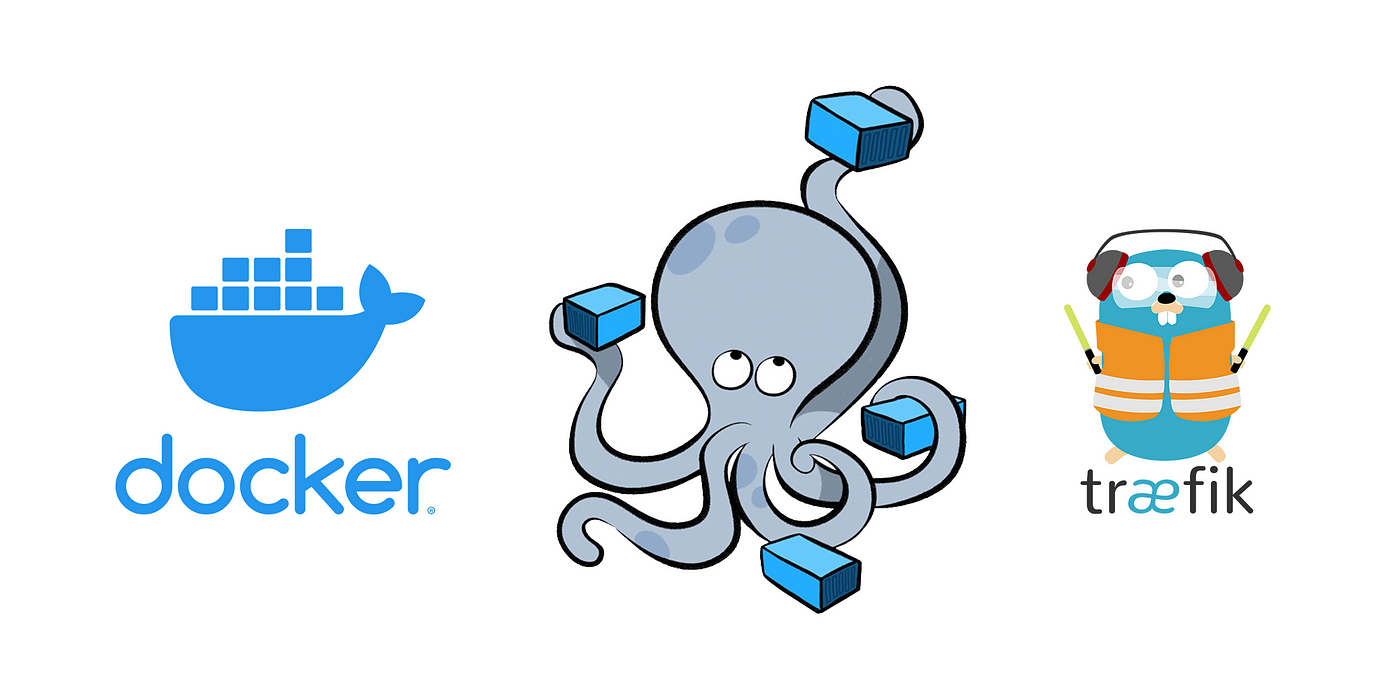Tutorial: Setting Up Traefik with Portainer for Docker Management
 Husein Indra Kusuma
Husein Indra Kusuma
Complete Guide: Work Management Virtual Machine from Scratch
This tutorial will guide you through setting up Traefik as a reverse proxy and Portainer for Docker container management. The tutorial assumes you have a Linux server with Docker and Docker Compose installed.
Step 1: Prepare the Directory Structure
Organize your setup for easy management by creating directories for Traefik and Portainer.
sudo mkdir -p /srv/traefik /srv/portainer
Step 2: Configure Traefik
2.1: Create the Traefik Configuration Files
Navigate to the Traefik directory:
cd /srv/traefik
Create the traefik.yml file for Traefik's static configuration:
sudo nano traefik.yml
Paste the following configuration:
entryPoints:
web:
address: ":80"
websecure:
address: ":443"
api:
dashboard: true
providers:
file:
directory: "/etc/traefik/dynamic/"
watch: true
certificatesResolvers:
letsencrypt:
acme:
email: "your-email@example.com" # Replace with your email
storage: "/acme.json"
httpChallenge:
entryPoint: web
Save and exit (Ctrl+O, Enter, Ctrl+X).
Create the dynamic directory and a dynamic configuration file:
sudo mkdir dynamic
sudo nano dynamic/dynamic.yml
Paste this content:
http:
routers:
traefik-dashboard:
rule: "Host(`traefik.example.com`)" # Replace with your domain
service: api@internal
entryPoints:
- websecure
tls:
certResolver: letsencrypt
Save and exit.
Create the acme.json file for SSL certificates and set proper permissions:
sudo touch acme.json
sudo chmod 600 acme.json
2.2: Create the Traefik docker-compose.yml
Create the docker-compose.yml file:
sudo nano docker-compose.yml
Paste the following content:
version: "3.8"
services:
traefik:
image: traefik:v2.10
container_name: traefik
restart: always
ports:
- "80:80"
- "443:443"
volumes:
- "/var/run/docker.sock:/var/run/docker.sock"
- "./traefik.yml:/etc/traefik/traefik.yml"
- "./dynamic:/etc/traefik/dynamic"
- "./acme.json:/acme.json"
networks:
- web
networks:
web:
external: true
2.3: Create the External Docker Network
Create a shared external network for Traefik and Portainer:
docker network create web
2.4: Start Traefik
Bring up the Traefik container:
docker compose up -d
Verify Traefik is running:
docker ps
Access the Traefik dashboard:
https://traefik.example.com
Step 3: Configure Portainer
3.1: Create the Portainer docker-compose.yml
Navigate to the Portainer directory:
cd /srv/portainer
Create the docker-compose.yml file:
sudo nano docker-compose.yml
Paste the following content:
version: "3.8"
services:
portainer:
image: portainer/portainer-ce:latest
container_name: portainer
restart: always
ports:
- "9000:9000" # Optional for direct access
volumes:
- "/var/run/docker.sock:/var/run/docker.sock"
- "./data:/data"
networks:
- web
networks:
web:
external: true
3.2: Start Portainer
Bring up the Portainer container:
docker compose up -d
Verify Portainer is running:
docker ps
Step 4: Configure Traefik to Route to Portainer
Edit the dynamic.yml file in /srv/traefik/dynamic:
sudo nano /srv/traefik/dynamic/dynamic.yml
Add the following configuration:
http:
routers:
portainer:
rule: "Host(`portainer.example.com`)" # Replace with your domain
service: portainer
entryPoints:
- websecure
tls:
certResolver: letsencrypt
services:
portainer:
loadBalancer:
servers:
- url: "http://portainer:9000"
Save and exit.
Step 5: Restart Traefik
Restart the Traefik container to apply the updated configuration:
docker compose -f /srv/traefik/docker-compose.yml down
docker compose -f /srv/traefik/docker-compose.yml up -d
Step 6: Access Portainer
Open your browser and navigate to:
https://portainer.example.comComplete the initial setup by creating an admin username and password.
Step 7: Secure the Traefik and Portainer Dashboards
To add basic authentication to Portainer and Traefik, update the dynamic.yml file to include middlewares.
Example:
http:
middlewares:
dashboard-auth:
basicAuth:
users:
- "admin:$2y$05$hashedPasswordForTraefik"
portainer-auth:
basicAuth:
users:
- "adminPortainer:$2y$05$hashedPasswordForPortainer"
routers:
traefik-dashboard:
rule: "Host(`traefik.example.com`)"
service: api@internal
entryPoints:
- websecure
tls:
certResolver: letsencrypt
middlewares:
- dashboard-auth
portainer:
rule: "Host(`portainer.example.com`)"
service: portainer
entryPoints:
- websecure
tls:
certResolver: letsencrypt
middlewares:
- portainer-auth
Restart Traefik:
docker compose -f /srv/traefik/docker-compose.yml down
docker compose -f /srv/traefik/docker-compose.yml up -d
Step 8: Verify Everything
Traefik Dashboard: Visit:
https://traefik.example.comPortainer Dashboard: Visit:
https://portainer.example.com
This completes the setup of Traefik with Portainer for managing Docker containers! 🚀
Subscribe to my newsletter
Read articles from Husein Indra Kusuma directly inside your inbox. Subscribe to the newsletter, and don't miss out.
Written by
